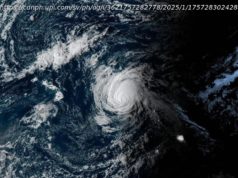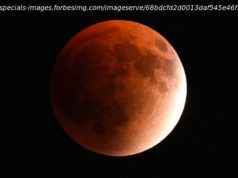China and Russia are mounting a united front over North Korea’s missile programme as pressure from the United States grows to rein in Pyongyang….
China and Russia are mounting a united front over North Korea’s missile programme as pressure from the United States grows to rein in Pyongyang.
Meeting in Moscow before heading to Germany for a state visit, President Xi Jinping and his Russian counterpart Vladimir Putin pressed North Korea to freeze its nuclear and missile programmes, but also called on the US and South Korea to halt large-scale military drills and deployment of a US anti-missile system in Seoul. The joint call came just hours after North Korea said it had successfully launched an intercontinental ballistic missile for the first time.
Pyongyang’s military programmes are expected to overshadow Friday’s G20 summit in Hamburg, Germany.
Xi and US President Donald Trump will have their second face-to-face meeting on the sidelines of the summit. Trump also is expected to meet Putin for the first time in Hamburg.
But Trump lashed out at China on Wednesday, pointing to a surge in its trade with North Korea as evidence that US reliance on Beijing to rein in Pyongyang was misplaced.
“Trade between China and North Korea grew almost 40 per cent in the first quarter. So much for China working with us – but we had to give it a try!” he tweeted.
Ahead of the G20 summit, Xi and Putin, who have already met three times this year, said they supported each other’s position over major global issues.
Putin also presented Xi with a medal in recognition of a new “strategic partnership”.
“We’ ve agreed to promote our joint initiative, based on the Russian step-by-step Korean settlement plan and Chinese ideas to simultaneously freeze North Korean nuclear and missile activities, and US and South Korean joint military drills, ” RT television quoted Putin as saying.
Xi said: “We believe that the world is turbulent, local conflicts are emerging constantly, and issues such as the Korean peninsula problem and the Syrian question remain very complex.”
Observers said the two leaders’ call for Washington and Seoul to stop their joint military moves indicated that Beijing and Moscow were creating a counterbalance to the US.
Li Xing, a professor of Russian affairs at Beijing Normal University, said: “Russia is inching closer towards China to agree on the dual-track strategy on the Korean issue, which is a Chinese idea.”
Zhang Jianrong, a Russian studies expert from the Shanghai Academy of Social Sciences, said Russia and China were finding a way out from the US pressure.
“Trump has been pushing China for action to curb North Korea’s missile development, and he has also piled pressure on Russia to rein in Iran, ” Zhang said. “The ball is now in the US’ court.”
In their joint call, China and Russia urged North Korea to make the “voluntary political judgment” to stop ballistic missile activities, as well as on the US to “correspondingly” halt large-scale military drills with South Korea, a US ally.
China, Russia to mark 70th anniversary of the end of second world war in show of unity
Beijing and Moscow also urged Washington to immediately halt deployment of its THAAD anti-missile system in South Korea, which the US says is necessary to counter the North Korean missile threat. China and Russia see the system as a threat to their defences.
The Sino-Russian call comes as China takes up the monthly rotating presidency of the United Nations Security Council.
“The timing … gives China quite a lot of opportunity and pressure to work out better proposals or solutions on the Korean issue, ” Zhang said.
Daniel Russel, a former top US diplomat on East Asian affairs, dismissed the joint statement. “It’s discouraging that the Chinese and Russians are still calling for ‘restraint by all sides’ , despite the fact that their client state, North Korea, has cast aside all restraint and is sprinting for the finish line in demonstrating a nuclear-armed ICBM capability, ” Russel said.
Additional reporting by Agence France-Presse






